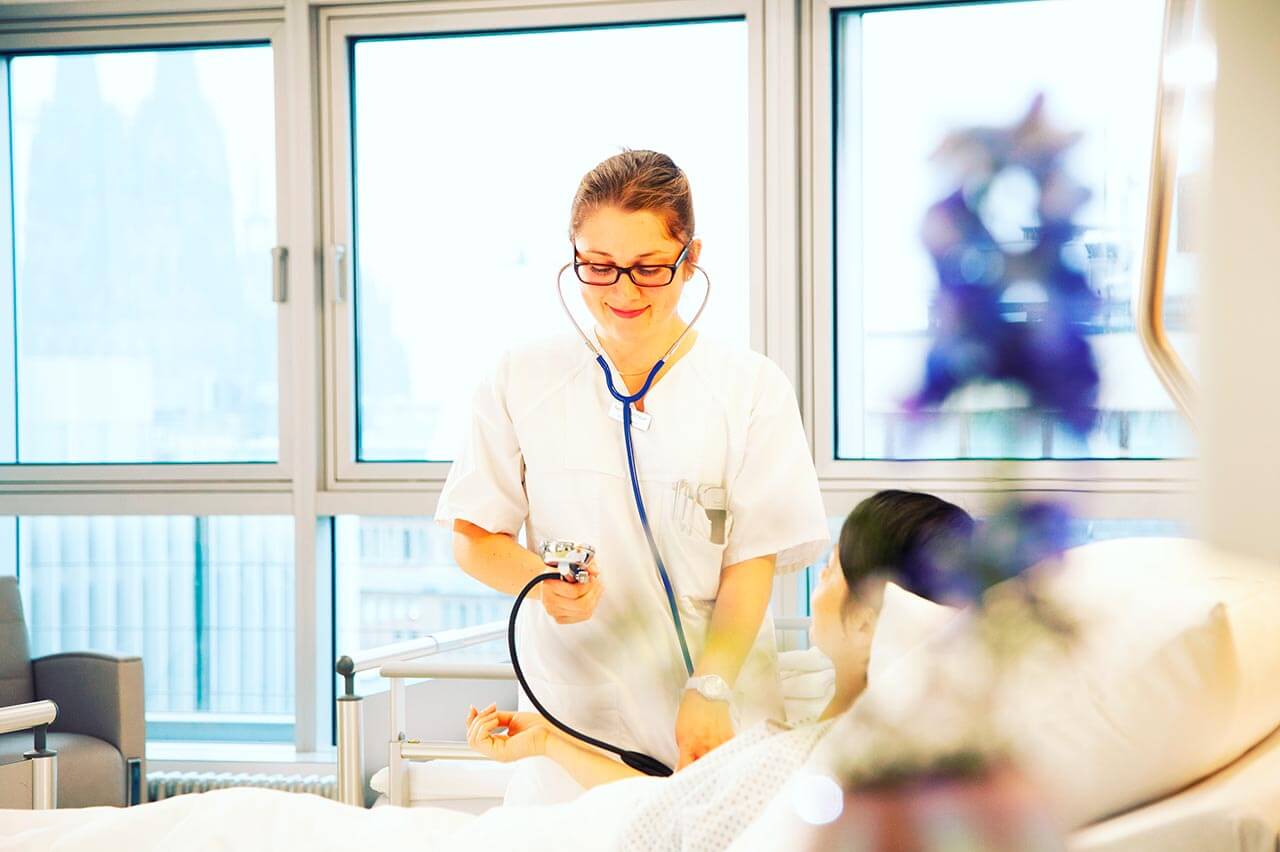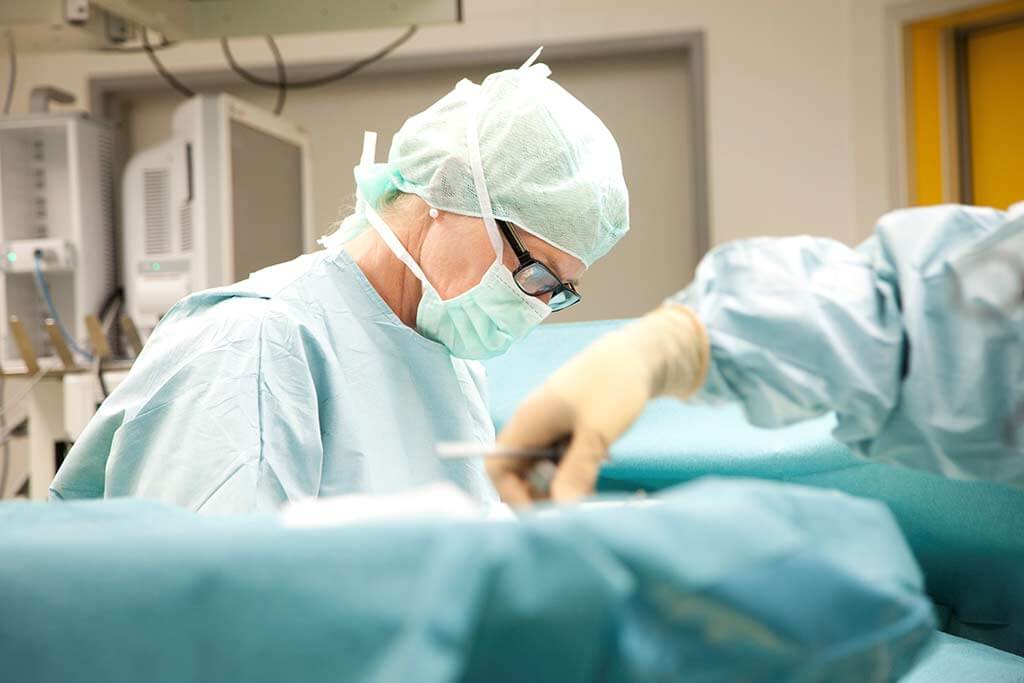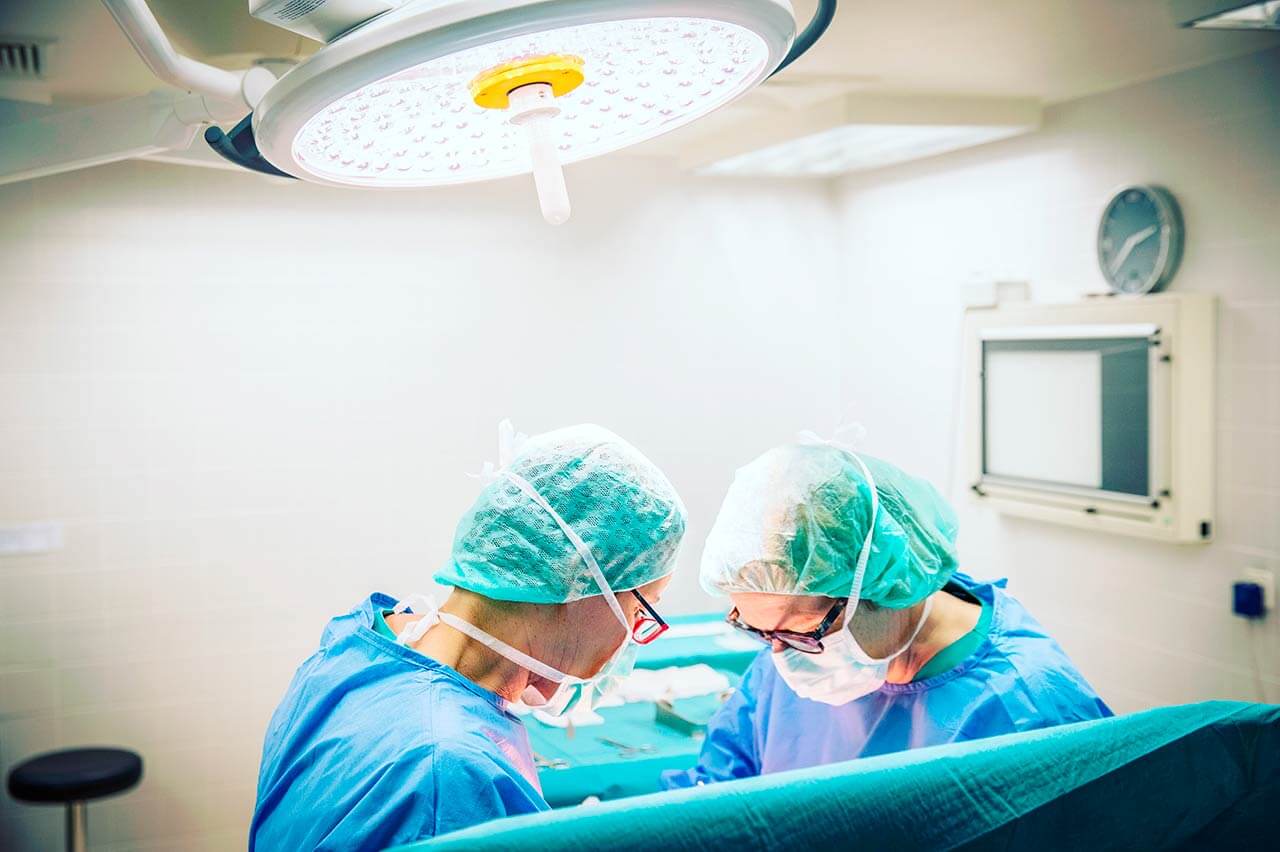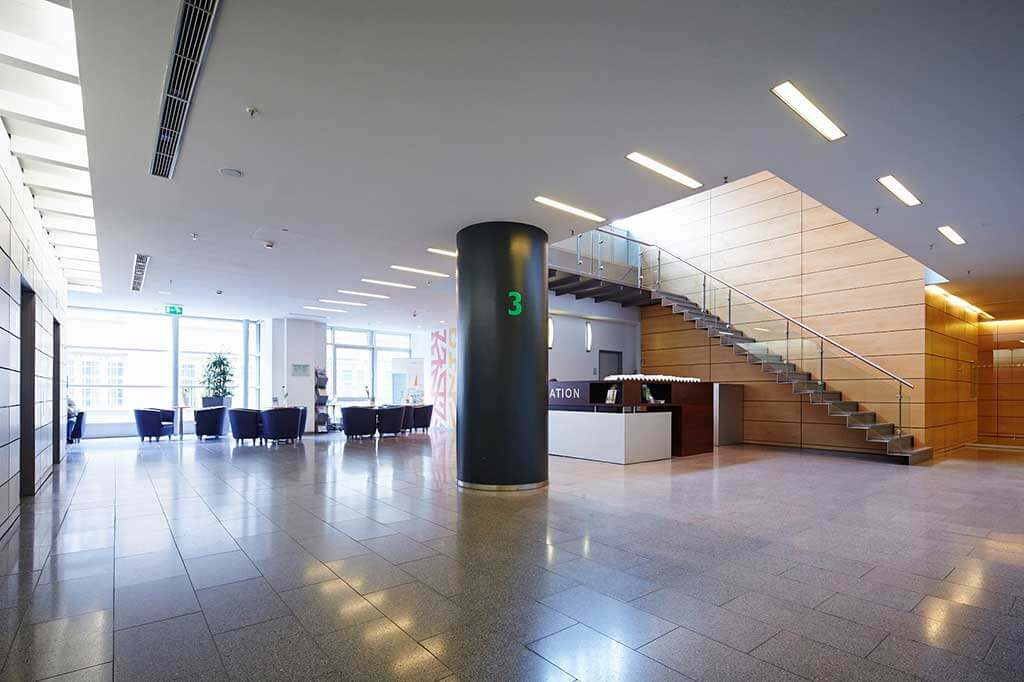
The program includes:
- Initial presentation in the clinic
- clinical history taking
- review of medical records
- physical examination
- laboratory tests:
- complete blood count
- general urine analysis
- biochemical blood test
- inflammation markers (CRP, ESR)
- blood coagulation analysis (aPTT, PT, INR)
- tumor markers (CEA, CA19-9, CA125)
- gynecological examination:
- colposcopy
- vaginal swab
- cervical biopsy with histological analysis (if clinically indicated, additional cost is 2000 €)
- pelvic ultrasound
- transvaginal ultrasound
- breasts ultrasound
- ultrasound of the abdomen
- CT/MRI of the abdomen and pelvic organs (if clinically indicated, additional cost is 650/1200 €)
- nursing services
- consultation of related specialists
- treatment by chief physician and all leading experts
- explanation of individual treatment plan
Required documents
- Medical records
- MRI/CT scan (not older than 3 months)
- Biopsy results (if available)
Service
You may also book:
 BookingHealth Price from:
BookingHealth Price from:
About the department
The Department of Gynecology at the PAN Clinic Cologne provides the full range of modern preventive, diagnostic and therapeutic services in the area of its competence. Medical care is provided both on an inpatient and outpatient basis. The department's primary specialization is minimally invasive treatment of various diseases of the female reprofuctivу system. Minimally invasive surgery can significantly reduce the hospitalization period for patients, thereby ensuring faster recovery, as well as provide better aesthetic results due to the absence of large scars. It is an important fact that the effectiveness of minimally invasive interventions is not inferior to classic open surgery. The department's operating rooms strictly comply with the standards of hygiene and safety, so the patients can count on the excellent quality of medical services. In addition, operations are performed by highly qualified specialists who have long successful clinical experience. The Chief physician of the department is Prof. Dr. med. Friedrich Wolff.
Many women come to the department with benign diseases requiring interventional treatment. One of the most common benign diseases is uterine fibroids. Despite the fact that the possibility of a benign uterine neoplasm to develop into cancer is almost equal to zero, the pathology can lead to other serious complications. Untimely treatment of uterine fibroids often leads to infertility or problems during pregnancy. To detect uterine fibroids, a woman has to undergo the following complex of diagnostic tests: clinical examination and laboratory tests, ultrasound scanning, diagnostic hysteroscopy (if indicated). Should the diagnosis be confirmed, gynecologists will select the optimal therapeutic method. Depending on the stage of the pathological process and the size of the uterine fibroid, the patient may be indicated enucleation of the uterine fibroid, resection of the uterine fibroid or hysterectomy (removal of the uterus). Hysterectomy is a last-line therapy and is used in especially severe clinical cases.
Endometriosis is another benign disease, which affects women between the ages of 25 and 40. If untreated, the disease can lead to infertility. In addition, in rare cases, areas of endometriosis can eventually develop into malignant tumors. To make a diagnosis, the department carries out instrumental diagnostics, including ultrasound scanning and diagnostic laparoscopy. At the initial stages of endometriosis, it is often sufficient to use only drug therapy. If the pathology is at a progressive stage, more radical measures will be required. The department's gynecologists successfully perform laparoscopic surgery to treat endometriosis. In rare cases, women with endometriosis may need surgery to remove the uterus and ovaries. In addition, the department performs special laparoscopic interventions to treat infertility caused by endometriosis.
It should be noted that the department's specialists also provide minimally invasive treatment of malignant tumors of the female reproductive system (total laparoscopic hysterectomy, laparoscopic supracervical hysterectomy, laparoscopically assisted vaginal hysterectomy). In most cases, laparoscopic operations for gynecological cancers are performed only at the initial stages of oncology. At the advanced stages, open surgery is usually required.
The department's therapeutic options are complemented by minimally invasive interventions to remove ovarian cysts, adhesions, ectopic pregnancy, inflammation and infertility. In addition, the team of the department's doctors specializes in laser surgery. They perform laser interventions to remove genital warts, endometrial ablation and laser interventions for endometriosis.
The work of the department's gynecologists is based on an individual approach to each patient and her clinical case. Thanks to a carefully elaborated treatment regimen, which is developed on the basis of particular diagnostic data and clinical indications, the department achieves high treatment success rates. Prior to appointing a particular interventional procedure, the attending physician holds an individual consultation, at which he provides the woman with detailed information about each stage of the intervention and the predicted outcome of the procedure.
The department's range of medical services includes:
- Laparoscopy
- Diagnostic laparoscopic interventions for chronic lower abdominal pain and infertility
- Removal of uterine fibroids (enucleation of uterine fibroids)
- Removal of ovarian cysts and tumors (enucleation of ovarian cysts, ovariectomy, adnexectomy)
- Laparoscopic surgery for endometriosis
- Laparoscopic interventions for adhesive disease (adhesiolysis)
- Laparoscopic tubal ligation (sterilization)
- Laparoscopic fallopian tube surgery (for example, for ectopic pregnancy, infertility, inflammation, restoration of reproductive function after sterilization)
- Laparoscopic procedures to remove the uterus (laparoscopic hysterectomy)
- Laparoscopic total hysterectomy
- Laparoscopic supracervical hysterectomy
- Laparoscopically assisted vaginal hysterectomy
- Hysteroscopy
- Diagnostic hysteroscopy (with and without anesthesia)
- Removal of uterine fibroids (resection of uterine fibroids)
- Removal of polyps (resection of polyps)
- Uterine septum resection
- Endometrial ablation
- Removal of intrauterine adhesions (synechia)
- Vaginal surgery
- Curettage combined with hysteroscopy
- Curettage after abortion
- Cervical conization
- Minor surgery and plastic surgery in the vagina and vulva
- Laser surgery
- Removal of genital warts
- Endometrial ablation
- Laser interventions for endometriosis
- Other treatment methods
Curriculum vitae
Higher Education and Professional Career
- 1975 Assistant Physician in the Department of Gynecology at the University Hospital Cologne.
- 1982 Senior Physician in the Department of Gynecology at the University Hospital Cologne.
- 1983 Habilitation and Professorship.
- 1989 Chief Physician in the Department of Gynecology at the Hospital in Cologne.
- 2004 President of the North Rhine-Westphalian Society for Gynaecology and Obstetrics.
- 2006 Member of the Expert Committee of North Rhine-Westphalia.
- 2007 Board Member of the German Association of Chief Physicians, German Working Group of Gynecologists and Obstetricians.
- 2015 Expert Group of the Institute for Quality Assurance and Transparency in Healthcare (IQTG).
Clinical Interests
- Treatment of menstrual irregularities.
- Treatment of pathological manifestations of menopause.
- Treatment of benign and malignant diseases of the female reproductive system.
- Treatment of urogynecological diseases (urinary incontinence and pelvic organ prolapse).
- Management of high risk pregnancies (for example, in diabetes mellitus, cardiovascular diseases, metabolic disorders).
Photo of the doctor: (c) Pan Klinik
About hospital
The PAN Clinic Cologne is a multidisciplinary medical facility that combines advanced medicine, excellent quality of patient care and a high level of comfort. Founded in 1999, the clinic is located in the very heart of Cologne. During this time, the medical complex has gained long clinical experience, but at the same time it has preserved its primary concept of medical care – high-quality diagnostics and treatment using the achievements of modern medicine.
Today, a huge team of doctors at the clinic admits patients in 25 medical fields, including neurosurgery, neurology, orthopedics, cardiology, gynecology, mammology, urology, endocrinology, plastic surgery, etc. It is worth noting that the clinic employs the best specialists with a wealth of experience and thorough clinical training in the best medical facilities in Germany, other countries of Europe and USA. The clinic's medical team includes many professors who are distinguished by outstanding achievements in the treatment of diseases of a particular profile and who successfully conduct research activities, participate in national and international congresses, symposia and other events.
The clinic annually provides treatment to more than 10,000 patients, and more than 3,000 interventions of varying complexity are performed in its operating rooms. The operating theaters have state-of-the-art technology and equipment for classical open surgery and minimally invasive interventions. In addition, all departments of the medical facility have advanced diagnostic equipment, so that doctors always make the correct diagnosis, which determines the success of subsequent treatment. During the therapeutic process, the specialists strive to choose the most sparing, but at the same time highly effective treatment regimen.
The quality of medical services provided in the clinic is awarded with the prestigious DIN ISO 9001 certification, and therefore patients trust their health to doctors with complete confidence and benefit from the optimal treatment of the European standard.
Photo: (с) PAN Klinik, (c) depositphotos
Accommodation in hospital
Patients rooms
The patients of the PAN Clinic Cologne live in light and cozy rooms with a modern design. A standard patient room includes a comfortable automatically adjustable bed, a bedside table, an air conditioning, a DVD player, a telephone, a TV and a nurse call system. The patient rooms also have Wi-Fi. Each patient room has an ensuite bathroom with shower and toilet. The bathroom also has a hairdryer and towels.
If desired, the patients can live in enhanced-comfort rooms. These patient rooms are distinguished by their more exclusive interiors, as well as beautiful views of the Cologne Cathedral and cityscapes. The bathrooms in these enhanced-comfort facilities include disposable slippers, a bathrobe, towels and toiletries. In addition, the patients living in enhanced-comfort rooms are offered a special menu.
Meals and Menus
The patient and his accompanying person are offered tasty and balanced three meals a day: buffet style breakfast and dinner, as well as lunch consisting of 3-4 courses. If for some reason you do not eat all the foods, you will be offered an individual menu. Please inform the medical staff about your dietary preferences prior to treatment.
Further details
Standard rooms include:
Religion
The religious services are available upon request.
Accompanying person
During the inpatient program, the accompanying person can live with the patient in a patient room or a hotel of his choice. Our managers will help you choose the most suitable option.
Hotel
During the outpatient program, the patient can stay at the hotel of his choice. Our managers will help you choose the most suitable option.








